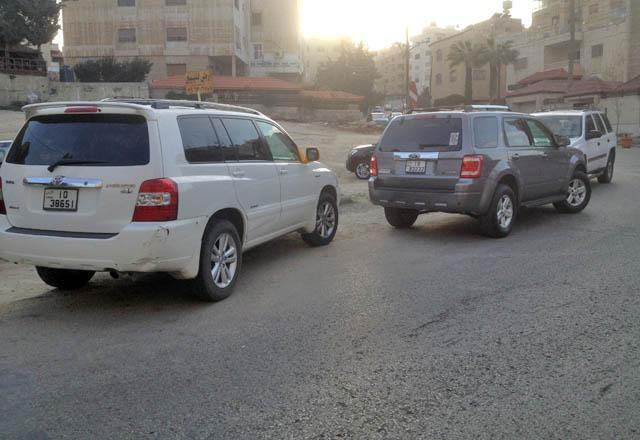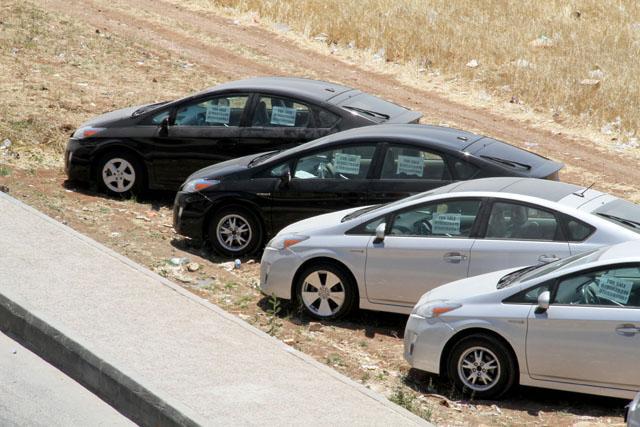You are here
Hike recorded in number of customs-cleared hybrid vehicles
By Ahmed Bani Mustafa - Jan 11,2018 - Last updated at Jan 11,2018
AMMAN — The number of customs-cleared hybrid vehicles in Jordan increased by 19.3 per cent in 2017 compared to 2016, a sector leader said on Thursday.
According to statistics from the Jordan Free Zone Investor Commission (JFZIC), the number of hybrid cars in 2017 reached 31,500 compared to 26,400 in the previous year.
The statistics also showed that the customs clearance of regular fuel cars increased by 23.4 per cent to reach 44,000 vehicles in 2017 compared 33,700 in 2016.
Regarding exports, the number has dropped by 7.4 per cent in comparison to 2016 reaching 35,000 vehicles instead of 37,700 in 2016.
JFZIC President Nabeel Rumman told The Jordan Times that the drop in export has begun with the turmoil in the region, especially due to the closure Iraq borders.
Jordan used to export around 100,000 cars annually, of which 80 per cent to Iraq and the rest to Saudi Arabia and Egypt, according to Rumman.
The commission’s chief attributed the hike in customs clearance of hybrid cars to the approaching deadline of the government’s decision to cancel the exemption of customs fees granted to this sort of vehicles.
Hybrid cars pay a reduced special tax of 25 per cent of its price, instead of 55 per cent for regular fuel cars. The decision came into effect in 2012 and has been renewed every year henceforth.
People are also given the choice to de-registrate old fully gasoline-operated cars (10 years or older), hand them to authorities and receive a partial exemption from the special tax to register a new hybrid car, on which the tax levied is 12.5 per cent, instead of 40 per cent for regular cars.
In December, the government extended the deadline to the end of January only for cars that entered the Kingdom before the end of 2017, said the president.
The decision to cancel the exemptions, which takes effect at the end of this month, will raise the prices of hybrid cars between JD4,000 and JD8,000, said Rumman.
For fully electrical cars, which are not included in the new decision and will remain exempted, the sector leader said that 5,950 were cleared last year.
Rumman called on the government to extend the cancellation decision, as it would positively affect the national economy with direct revenues to the Treasury.
If the tax is 55 per cent again, the demand will decrease by 60 or 70 per cent, which will slash public revenues by JD40 or JD50 million, he added.
Related Articles
AMMAN — Not one hybrid car has been cleared by customs since the recent government decision to cancel a tax exemption on such vehicles, stak
AMMAN — The prices of hybrid cars will see an increase as of January 2022, due to the government decision to cancel tax exemptions, accordin
AMMAN — The number of customs-cleared hybrid vehicles dropped by 41.15 per cent in 2018 compared to 2017, while the re-exported gasoline veh













